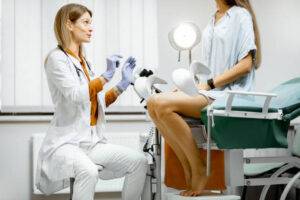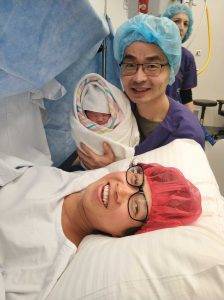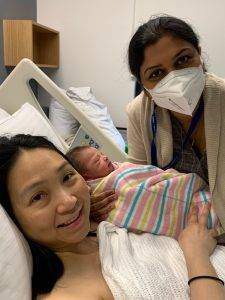Service
Services Offered by Dr. Samina Ahmed
Dr. Samina specializes in diagnosing and treating a wide range of gynaecological conditions for women at every stage of life. Whether you’re a young woman, an expectant mother, or a post-menopausal woman, Dr. Samina offers personalized care. Below are the key services available:

DR Samina Ahmed
MBBS, FCPS, FRANZCOG, MRepMed
Services
Fertility Assistance and Treatment
_____________
We offer personalized fertility treatment plans to help individuals and couples achieve their dream of starting a family. Our services include ovulation induction, assisted reproductive technologies, and expert care to address underlying fertility issues.
Fertility Assistance and Treatment
We offer personalized fertility treatment plans to help individuals and couples achieve their dream of starting a family. Our services include ovulation induction, assisted reproductive technologies, and expert care to address underlying fertility issues. Whether you're struggling with unexplained infertility or specific conditions like PCOS or fibroids, we provide tailored treatments to optimize your chances of conception. Our team of fertility specialists is committed to guiding you through every step of the journey, ensuring you have the support and care needed to achieve a successful pregnancy. From initial consultation to post-treatment care, we aim to make your fertility journey as smooth and successful as possible.
Ovulation Induction
_____________
Ovulation Induction is a form of Assisted Reproductive Technology (ART) and involves taking medication to improve ovulation and is usually the first-line fertility treatment.
Ovulation induction
At our clinic, we offer ovulation induction treatments to help stimulate egg development and release for women with irregular menstrual cycles or those who do not ovulate on their own. We use hormonal therapy, such as medications that block estrogen receptors to stimulate the release of Follicle Stimulating Hormone (FSH), which promotes ovulation and increases the chances of conception.
Recurrent Miscarriage
_____________
For women experiencing repeated miscarriages, our clinic offers specialized care and diagnostic services to identify underlying causes. We provide personalized treatment options to support a healthy pregnancy and reduce the risk of future miscarriage.
Recurrent Miscarriage
For women experiencing repeated miscarriages, our clinic offers specialized care and diagnostic services to identify underlying causes. We provide personalized treatment options to support a healthy pregnancy and reduce the risk of future miscarriage. Our expert team conducts thorough testing, including hormonal assessments, genetic screening, and uterine evaluations, to uncover potential factors contributing to recurrent pregnancy loss. Based on the findings, we create a customized treatment plan that may include medications, lifestyle adjustments, or surgical interventions. With compassionate support and targeted care, our goal is to help you carry a pregnancy to term and achieve a successful, healthy delivery.
Menstrual Issues
_____________
We provide treatment for a variety of menstrual issues, including heavy periods, irregular cycles, and painful menstruation. Our team offers both medical and lifestyle interventions to restore regular menstrual health.
Menstrual Issues
We provide treatment for a variety of menstrual issues, including heavy periods, irregular cycles, and painful menstruation. Our team offers both medical and lifestyle interventions to restore regular menstrual health. Depending on the severity and underlying causes of your menstrual issues, we may recommend options such as hormonal therapies, birth control methods, or lifestyle changes to help regulate your cycle. For those with more complex conditions like fibroids or endometriosis, we offer targeted treatments that can help alleviate pain and manage symptoms. Our goal is to improve your overall well-being and ensure that your menstrual health is in balance.
Pelvic Pain
_____________
Pelvic pain can be debilitating and affect your quality of life. Our expert team evaluates and treats the underlying causes of pelvic pain, such as endometriosis, fibroids, or other reproductive health conditions, offering relief and improved well-being.
Pelvic Pain
Pelvic pain can be debilitating and affect your quality of life. Our expert team evaluates and treats the underlying causes of pelvic pain, such as endometriosis, fibroids, or other reproductive health conditions, offering relief and improved well-being. Through a comprehensive assessment, including diagnostic tests like ultrasounds or laparoscopy, we identify the root cause of your pain. Based on the diagnosis, we offer a variety of treatment options, from medication and hormonal therapy to minimally invasive surgeries like laparoscopy. Our goal is to not only reduce pain but also to address the underlying condition, helping you return to a pain-free, active lifestyle.
Endometriosis
_____________
Endometrioses is a condition that affects over 175 million women worldwide. March is Endometrioses month, so Dr Samina is going to tell you a little more about this condition and its symptoms.
Endometriosis
At our clinic, we provide comprehensive care for managing endometriosis, a condition where tissue similar to the uterine lining grows outside the uterus, often causing pelvic pain, especially during menstruation. Endometriosis can affect the ovaries, fallopian tubes, and the pelvic lining, and in rare cases, it may spread to other organs
Reproductive Health Services
_____________
Our reproductive health services cover a wide range of issues affecting women’s reproductive systems. We offer care for hormonal imbalances, irregular periods, sexual health, and more. Our clinic provides education, screening, and treatment for conditions like polycystic ovary syndrome (PCOS), uterine fibroids, and ovarian cysts. We offer both preventive care and treatment options for common reproductive health issues, ensuring that women have the tools they need to maintain their reproductive well-being at every stage of life.
Reproductive Health Services
Our Reproductive Health Services support women throughout their reproductive journey, from puberty to menopause. We offer a wide range of services to address concerns like hormonal imbalances, irregular cycles, and fertility issues. Our team specializes in treating conditions such as PCOS, endometriosis, fibroids, and ovarian cysts, helping restore reproductive health.
Contraception / IUD Insertion
_____________
Contraception plays a crucial role in family planning, allowing individuals and couples to control when and if they have children. At our clinic, we offer a comprehensive range of contraceptive methods to meet the diverse needs and preferences of our patients. Our goal is to provide you with the right options to suit your health, lifestyle, and family planning goals. Among the many methods available, Intrauterine Devices (IUDs) are one of the most popular and effective long-term contraceptive choices.
Contraception / IUD Insertion
At our clinic, we offer a wide range of contraceptive options to help individuals and couples manage family planning. We provide IUDs (Intrauterine Devices), oral contraceptives, implants, and injections, catering to diverse patient needs. IUDs are highly effective, with a success rate of over 99%, and come in two types: hormonal IUDs, which release progestin, and copper IUDs, which are non-hormonal and prevent sperm from fertilizing the egg. They offer long-term protection, lasting from 3 to 10 years, with minimal maintenance.
Hormone RHRT and Menopause
_____________
Hormone Replacement Therapy (HRT) is used to alleviate symptoms of menopause, such as hot flashes, night sweats, mood swings, and vaginal dryness. Our team of experts provides customized HRT options based on your symptoms and medical history. We monitor your response to HRT and make adjustments as needed to ensure maximum benefit. We also offer holistic approaches and lifestyle advice to help manage menopause symptoms naturally, allowing for a smoother transition during this stage of life.
Hormone Replacement Therapy (HRT) and Menopause Care
At our clinic, we provide comprehensive menopause care, including personalized Hormone Replacement Therapy (HRT) to manage symptoms such as hot flashes, night sweats, mood swings, and vaginal dryness. We offer both estrogen-only HRT for women who have had a hysterectomy and combined HRT (estrogen and progesterone) for women with a uterus. HRT is available in various forms, including oral pills, patches, gels, creams, and vaginal rings, allowing for flexibility in treatment options.
Lichen Sclerosis
_____________
Lichen sclerosis is a chronic skin condition that affects the genital and anal areas, leading to discomfort and itching. Treatment typically involves the use of topical steroids to reduce inflammation and improve skin condition. Our clinic provides comprehensive management strategies for lichen sclerosis, focusing on symptom relief and preventing long-term complications. We take a holistic approach to managing this condition, combining medical treatment with supportive care and lifestyle adjustments to improve your quality of life.
Lichen Sclerosis Treatment
At our clinic, we offer comprehensive care for managing Lichen Sclerosis, a chronic skin condition affecting the genital and anal areas. Our treatments focus on symptom relief and preventing complications, including the use of topical steroids to reduce inflammation and control symptoms. For patients who cannot tolerate steroids, we may recommend topical calcineurin inhibitors. We also advise regular moisturization and emollients to keep the skin hydrated and prevent dryness, ensuring long-term skin health.
Prolapse Treatment / Pessary
_____________
Pelvic organ prolapse occurs when the bladder, uterus, or rectum drops into the vaginal canal due to weakened pelvic muscles. Symptoms may include urinary incontinence, pelvic pressure, and difficulty with bowel movements. Our clinic offers non-surgical treatment options, such as pessary insertion, which provides support to the prolapsed organs. For more severe cases, we may recommend surgical options. Our team will guide you through the available treatments to restore comfort and function.
Prolapse Treatment / Pessary Insertion
At our clinic, we provide comprehensive care for pelvic organ prolapse, a condition where pelvic organs like the bladder, uterus, or rectum drop from their normal position. We offer non-surgical treatments such as pessary use, a device inserted into the vagina to support the prolapsed organs. Pessaries are minimally invasive, provide immediate relief, and come in various shapes and sizes to ensure the right fit for each patient.
Urinary Incontinence
_____________
Urinary incontinence, or the involuntary loss of urine, can be an embarrassing and challenging condition. We offer a variety of treatment options, including pelvic floor exercises, behavioral therapy, medications, and minimally invasive surgical procedures. Our goal is to help improve bladder control and reduce the impact of urinary incontinence on your daily life. We work closely with you to develop a treatment plan tailored to your specific needs.
Urinary Incontinence Treatment
At our clinic, we provide personalized care for managing pelvic organ prolapse, a condition where organs like the bladder, uterus, or rectum drop from their normal position. Symptoms include pressure, urinary incontinence, and a vaginal bulge. One effective, non-surgical treatment is the use of a pessary, a device inserted into the vagina to support prolapsed organs, offering immediate symptom relief. We ensure the right fit for each patient and provide regular follow-ups for comfort and effectiveness.
PCOS, Fibroids, and Ovarian Cysts
Polycystic ovary syndrome (PCOS), uterine fibroids, and ovarian cysts are common conditions that can lead to infertility, pain, and hormonal imbalances. Our clinic offers comprehensive diagnostic services, including ultrasounds and hormonal tests, to accurately diagnose these conditions. Treatment options include medication, hormone therapy, and surgical procedures such as laparoscopic surgery or myomectomy for fibroid removal. We also provide fertility treatments to address related reproductive concerns.
PCOS, Fibroids, and Ovarian Cysts Treatment
At our clinic, we provide comprehensive diagnostic services, including ultrasounds and hormonal tests, to accurately diagnose these conditions. Treatment options include medications, hormone therapy, and surgical procedures like myomectomy for fibroid removal. We also offer fertility treatments such as IUI and IVF for patients struggling with infertility. Each treatment plan is personalized to ensure the best outcomes for our patients.
Hysteroscopy
_____________
Hysteroscopy is a procedure used to examine the inside of the uterus and diagnose or treat a variety of uterine conditions. During the procedure, a thin, flexible instrument called a hysteroscope is inserted through the cervix into the uterus, allowing the doctor to directly view the uterine lining.
Hysteroscopy
Hysteroscopy is a procedure used to examine and treat uterine conditions. A thin, flexible instrument called a hysteroscope is inserted through the cervix into the uterus to view the uterine lining. It is commonly used to investigate abnormal bleeding, infertility, or recurrent miscarriages and can identify conditions like fibroids, polyps, adhesions, and uterine malformations. Hysteroscopy is not only diagnostic but also therapeutic, allowing for the removal of polyps, fibroids, or scar tissue. The minimally invasive procedure is typically done on an outpatient basis under local or general anesthesia, with a short recovery time, allowing most patients to return to regular activities within a few days.
Laparoscopy and Keyhole Surgery
_____________
Laparoscopy and Keyhole Surgery is a minimally invasive surgical technique that allows doctors to perform surgeries with small incisions, typically no larger than a few millimeters. This method is commonly used for diagnostic purposes or to treat conditions such as endometriosis, ovarian cysts, fibroids, or pelvic inflammatory disease. By using a small camera (laparoscope) and specialized instruments inserted through tiny incisions, the surgeon can view and treat the affected areas with great precision, leading to less pain, quicker recovery, and minimal scarring.
Laparoscopy and Keyhole Surgery
Laparoscopy, also known as keyhole surgery, involves inserting a small camera through a tiny incision in the abdomen, allowing surgeons to view inside the body without large incisions. It is commonly used to treat conditions like ovarian cysts, fibroids, and endometriosis, as well as for sterilization, gallbladder removal, or weight loss surgery. The main advantages of laparoscopy include reduced recovery time, less pain, smaller scars, and a lower risk of infection compared to traditional open surgery. The procedure is typically done under general anesthesia, with most patients able to go home the same day. Its precision makes it a preferred choice for both diagnosis and treatment
Colposcopy and Vulvoscopy
_____________
Colposcopy and Vulvoscopy are diagnostic procedures used to examine the cervix, vagina, and vulva more closely when abnormal results are found during routine screenings, such as a Pap smear or HPV test. Colposcopy involves using a special microscope to closely inspect the cervix for signs of abnormalities, while vulvoscopy is used to examine the vulva for any unusual changes or lesions. These procedures help in diagnosing conditions like precancerous lesions, infections, or other concerns in the reproductive organs.
PCOS, Fibroids, and Ovarian Cysts Treatment
At our clinic, we provide comprehensive care for common gynecological conditions like Polycystic Ovary Syndrome (PCOS), uterine fibroids, and ovarian cysts, which can affect reproductive health, causing symptoms such as infertility, pelvic pain, and irregular periods. We offer diagnostic services, including ultrasounds and hormonal tests, to accurately diagnose these conditions
Management of cervical abnormalities
_____________
Management of abnormal cervical screening results involves several steps to identify and address potential issues like precancerous changes or infections detected during a Pap smear or HPV test. If abnormalities are found, further evaluation is necessary, often starting with a colposcopy to closely examine the cervix. If suspicious tissue is identified, a biopsy may be taken for analysis. Treatment options may include cryotherapy, LEEP, or laser therapy to remove abnormal tissue. In more severe or persistent cases, a cone biopsy or hysterectomy may be recommended.
Management of abnormal cervical screening
At our clinic, we provide comprehensive care for abnormal cervical screening results, emphasizing regular monitoring and follow-up screenings to prevent precancerous changes from progressing. For women with high-risk HPV strains, consistent screenings are essential for early detection, as untreated HPV infections can lead to cervical cancer.
Endometrial Ablation (Treatment of HMB)
_____________
Endometrial ablation is a minimally invasive procedure designed to treat Heavy Menstrual Bleeding (HMB) by permanently removing or destroying the lining of the uterus (endometrium). This treatment is an excellent alternative to hysterectomy for women who experience abnormally heavy periods and have not responded to other medical treatments.
Endometrial Ablation (Treatment of Heavy Menstrual Bleeding - HMB)
HMB is a condition characterized by excessive menstrual blood loss that interferes with a woman's physical, emotional, and social quality of life. It can cause fatigue, anemia, and severe discomfort.
Common symptoms of HMB include:
Bleeding that lasts longer than 7 days
Soaking through pads or tampons every hour
Passing large blood clots
Limiting daily activities due to heavy flow
Quick Contacts
- 1300 523 937
- contact@drsamina.com.au
- 03 8526 8965
- St Vincent’s Private Hospital
- The Clinic Footscray
- All Rights Are Reserved 2025
- Developed By Jassra Naeem







